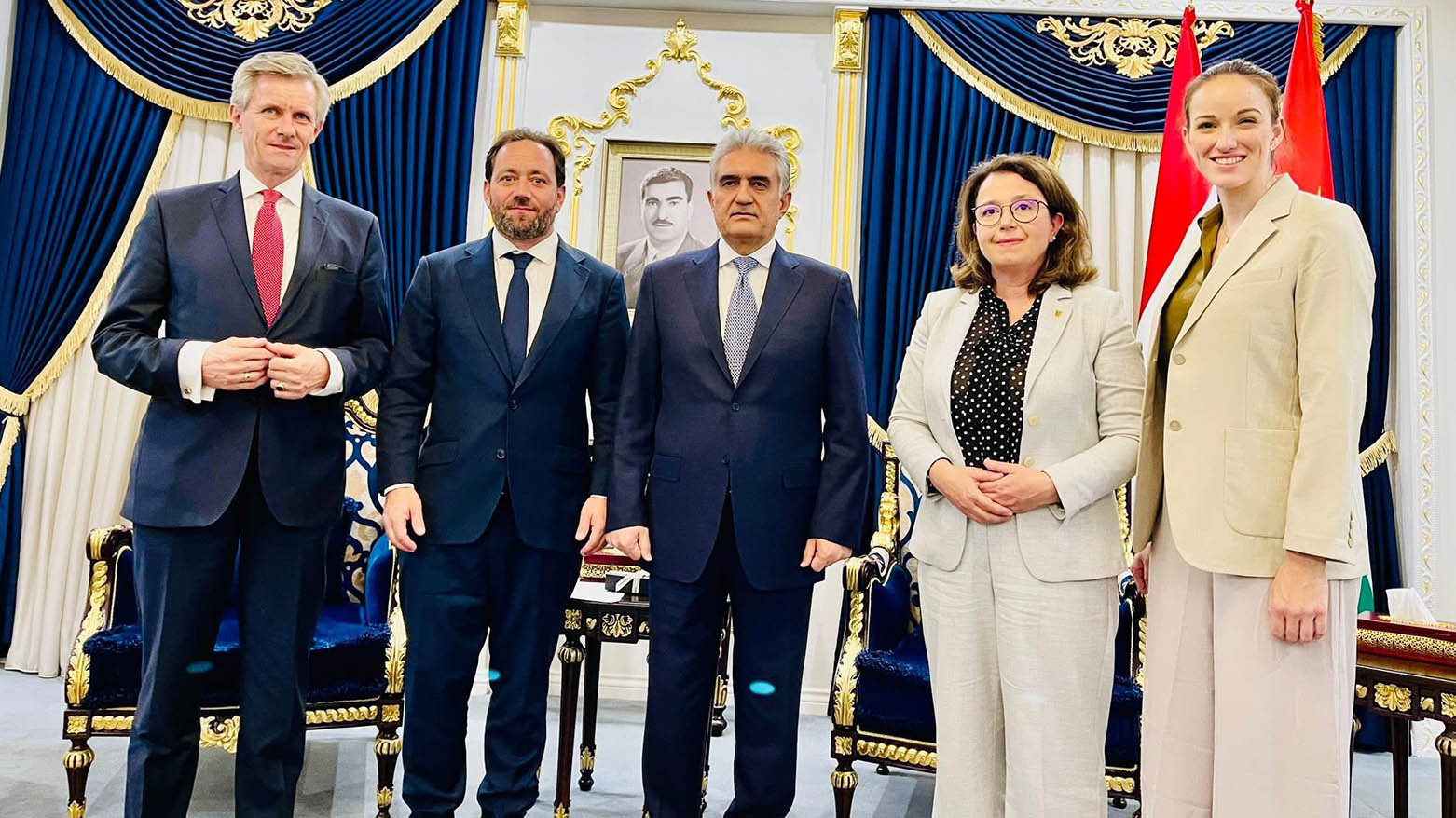German Delegation Praises Kurdistan Region’s Stability and Coexistence during Visit
The delegation, led by Minister of State Florian Hassler and accompanied by two members of the Baden-Württemberg State Parliament, was received by Kurdistan Regional Government (KRG) Interior Minister Rebar Ahmed in Erbil.

ERBIL (Kurdistan24) — A high-level delegation from Germany’s Baden-Württemberg state arrived in the Kurdistan Region on Sunday, commending its stability, security, and model of coexistence among diverse communities.
The delegation, led by Minister of State Florian Hassler and accompanied by two members of the Baden-Württemberg State Parliament, was received by Kurdistan Regional Government (KRG) Interior Minister Rebar Ahmed in Erbil.
Minister Ahmed expressed gratitude for Germany’s continued support and longstanding friendship with the Kurdistan Region. He briefed the delegation on the current political situation in Iraq and the wider Middle East, as well as key reform and development initiatives undertaken by the KRG’s ninth cabinet under Prime Minister Masrour Barzani—particularly in the fields of electricity and drinking water, despite ongoing challenges.
The Baden-Württemberg delegation praised the KRG’s efforts to maintain security and promote peaceful coexistence among the Region’s various ethnic and religious communities. They also discussed joint humanitarian and development projects, including an initiative to provide medical treatment for Yezidi women who survived ISIS captivity, as well as other programs currently underway in Duhok province.
Highlighting their admiration for the Kurdistan Region’s progress and potential, the delegation expressed interest in strengthening cooperation and exploring investment opportunities in agriculture and tourism.
Additionally, the German officials extended an invitation to Minister Ahmed to visit Baden-Württemberg to further discuss collaboration and explore opportunities for Kurdish participation in upcoming trade, labor, industry, tourism, and agricultural fairs.
Germany has maintained a consulate general in Erbil since 2012, while the Kurdistan Region has had representation in Berlin since 1992. Numerous high-level meetings have occurred between the two parties, including a notable visit by President Masoud Barzani to Berlin in 2009, where he met with German Chancellor Angela Merkel and Foreign Minister Frank-Walter Steinmeier.
In response to ISIS's advance into Northern Iraq and the Kurdistan Region, the German government decided to provide military aid to the Peshmerga. The first shipment, which included non-lethal military equipment, was sent in August 2014. Shortly thereafter, in early September, Germany supplied lethal equipment and logistical support, including assault rifles, machine guns, pistols, anti-tank weapons, night-vision devices, and radios.
Germany's support for the Peshmerga was part of a broader effort to combat ISIS and stabilize the region. This assistance included training programs for Kurdish forces and further shipments of military equipment. The collaboration highlighted Germany's commitment to supporting allies in the fight against terrorism.
Pleased to once again receive a distinguished delegation from the German Federal State of #BadenWürttemberg, led by Minister Florian Hassler, State Secretary of the Ministry of State of the Federal State of @RegiernungBW, and Albrecht von Wittke, German Consul General of… pic.twitter.com/vH7qurIVq9
— Rêber Ahmed (@RayberAhmed) October 19, 2025